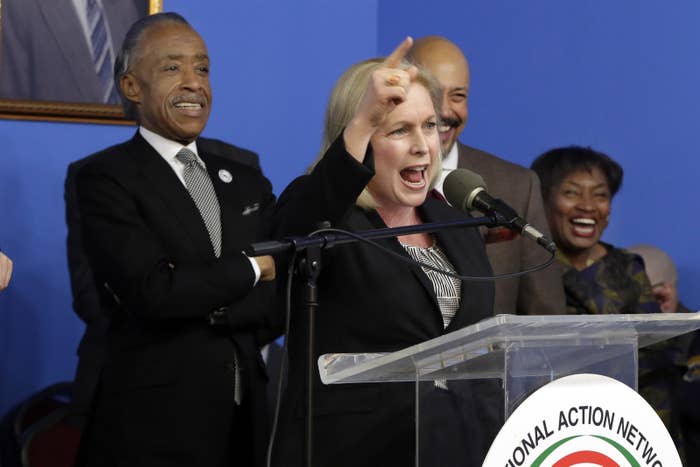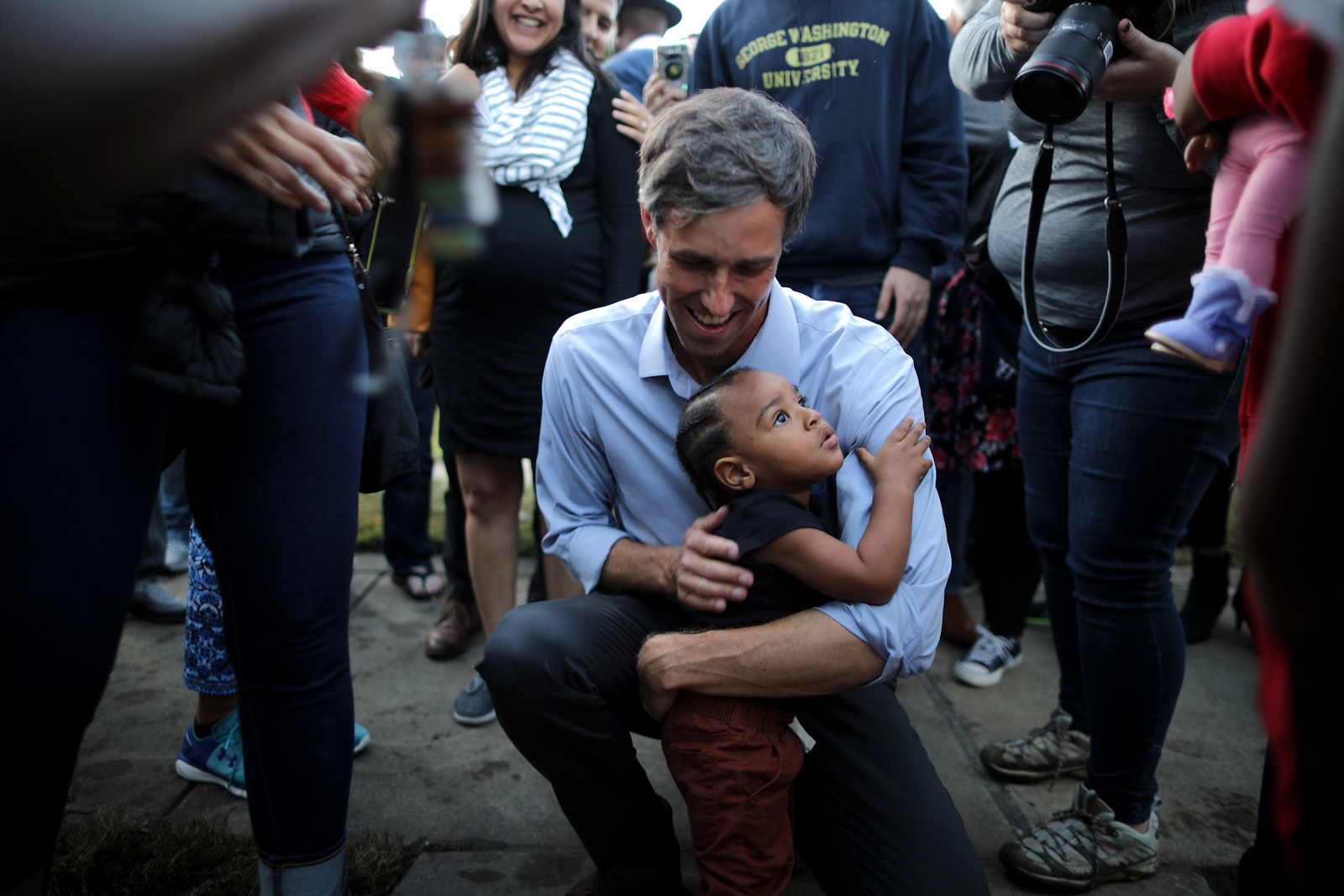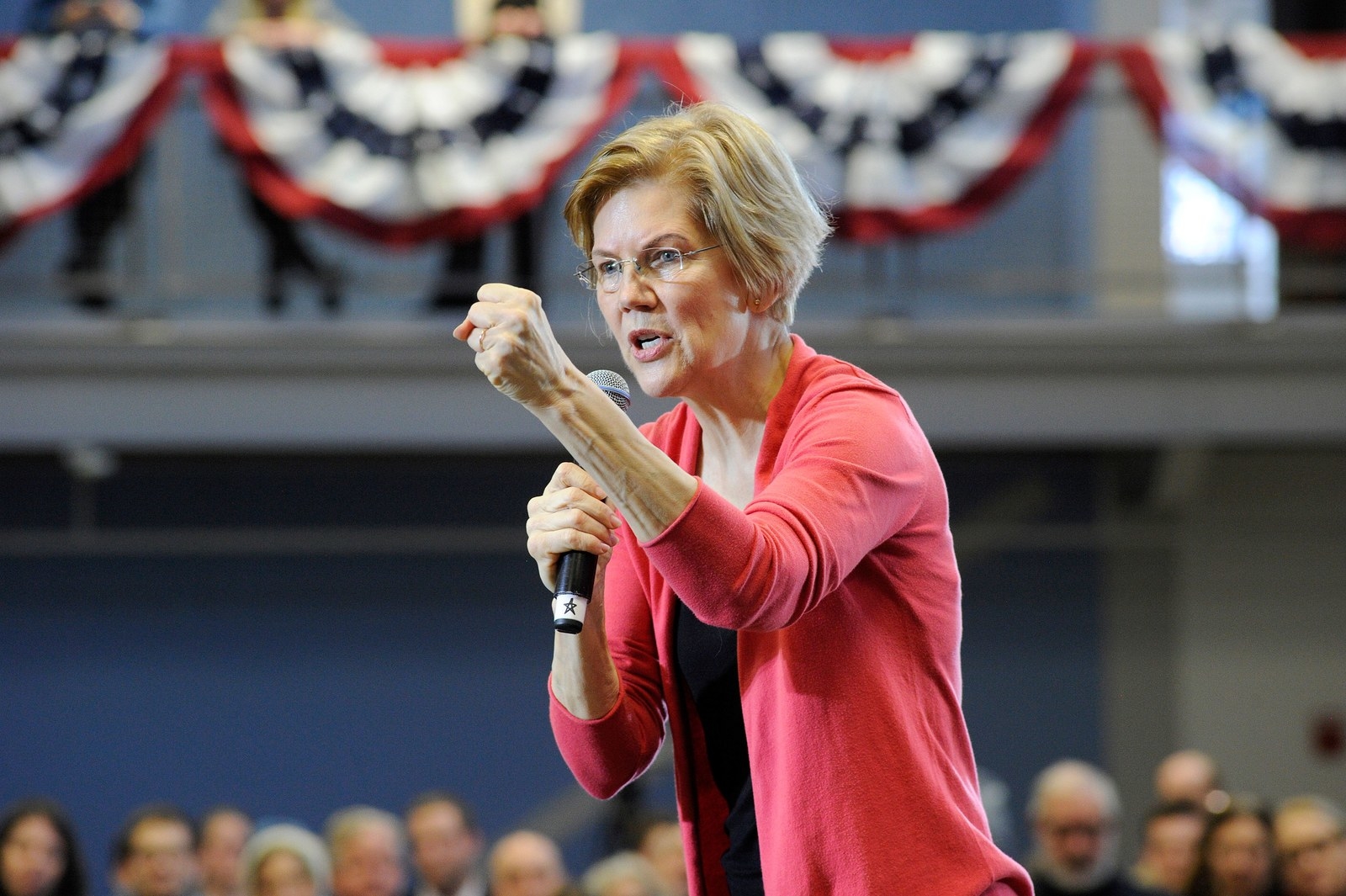
Kirsten Gillibrand exhorted them in the season of spiritual warfare to put on the full armor of God. Through “amens,” Mitch Landrieu decried the immorality of public Confederate memorials. And Beto O’Rourke extemporaneously characterized controversial NFL protests as deeply patriotic, and the tragic killing of a young Dallas man in his own apartment by an off-duty police officer as a symptom of deep-seated racism in America.
Before beginning in earnest to lay the groundwork for a run at the nomination, each Democrat displayed a trait rare in white politicians: the ability with words and presence to electrify a mostly black audience. The importance of that ability, which eluded every unsuccessful Democratic nominee since the advent of television, is about to be brought to bear on the 2020 Democratic primary, as likely candidates weigh how to honor Martin Luther King Day and celebrate Black History Month.
A white candidate who excites black audiences is an intriguing match to the current moment of racial tension in America, as the Democratic Party works to elect a nominee to defeat a president who dismisses claims that his presidency has stoked the fires of racism. President Donald Trump’s condemnations have done little to change the perception in the minds of the left that he is himself a racist.
“The 2020 candidates have been able to dance around with slogans and hashtags but now it’s time for the fat to hit the fire,” the Rev. Al Sharpton said in an interview with BuzzFeed News. “I think that the worst thing that could happen is that on Martin Luther King Day they not address Martin Luther King-type issues, like poverty and voting rights. That would be a desecration” of King’s legacy.
“The modern era of our justice work has made it impossible for any candidate not to take on race and its relationship to all areas of policy,” said the activist Brittany Packnett, who is writing her first book, We Are Like Those Who Dream. Packnett added that the mandate especially applied to white candidates looking to join the race. “We need them to be connecting the dots between current political rhetoric, historic marginalization, and the suffering people are enduring right now. Candidates have to use their platform for something bigger than themselves.”
“The 2020 candidates have been able to dance around with slogans and hashtags but now it’s time for the fat to hit the fire.”
Aides and speechwriters for every Democrat thinking about the presidency are finalizing their plans for next week’s King holiday. An aide said Gillibrand, who has signaled she will soon announce a presidential run, will speak at Sharpton’s building in Harlem, where she brought the audience to its feet a year ago. A former Landrieu aide suggested the former New Orleans mayor, who wrote a book about his racial awakening, was considering several options for the holiday as he weighs a presidential run, but that it was unclear if he was going to be part of a public event. A spokesperson for O’Rourke, who is getting ready for a national road trip as he makes up his mind on a campaign, said that there was nothing final.
Other possible candidates already have plans in place. A spokesperson for Joe Biden said the former vice president “will be honored and give brief remarks” at Sharpton’s conference, where he will receive an award for public service. Bernie Sanders will speak at the South Carolina NAACP’s annual King Day at the Dome rally, which Cory Booker is also due to attend. Elizabeth Warren, a spokesperson said, will “honor the life and legacy of Dr. Martin Luther King Jr. and reaffirm the fight for social, racial and economic justice” at a ticketed breakfast in Boston.
Pete Buttigieg — the mayor of South Bend, Indiana, who ran for chair of the Democratic National Committee in 2017 and who himself is considering a run for president — stressed in an interview with BuzzFeed News the need for Democratic leaders to draw meaningful parallels between King’s legacy and the celebration of black achievement in America and the “recent struggles and disparities that remain.” In answering a question about how he’d do that, he offered a glimpse at a message about how King’s eloquence and causes are being undermined by Trump’s “dumbing down of words” — a message certain to resonate with black Americans concerned that the promise of America no longer includes them.
“As a general rule, the story of America has been one that’s about moving in the right direction,” he said. “Each era saw more people have access to power and demand in this country. That progress was pretty steady, and of course there were setbacks. But we’re now at this moment, however, where it’s backsliding. And we may not be able to say that our generation expanded democracy like the generations before us did. And I think that’s one of the big problems facing all of us.”
In the world of Democratic politics, top aides and consultants are taking people with the capacity to excite black audiences seriously. Symone D. Sanders, a Democratic communications strategist and analyst, told BuzzFeed News said that capturing the political imagination of black people is a prerequisite for the eventual nominee because it’s an indication that the candidate can turn them out.
“People like Kamala Harris, Cory Booker, and Barack Obama could deliver a speech about putting kibble in a bowl for a dog and they will be celebrated for it,” said Sanders, who added that because black voters are primed to hear the themes Democrats want to talk to them about, campaigns should not confuse a polite audience with one that has been dazzled. “So the question for candidates to ask is whether they are the kind of person that really moves the people or not. Because they’re going to be clapping regardless.”

Being able to connect with black voters is vital for Democrats; Trump’s victory coincided with a decline in black voter turnout from a record high in 2012. Black voters will also be decisive in the primaries, exerting huge influence in early states like South Carolina.
Black voters have leaned Democratic ever since the party began advocating for greater civil rights protections. Before that, they were mostly split between the two parties. Roland Martin, the host of Roland Martin Unfiltered, a digital news program focusing on issues that affect black Americans, discourages the major parties from caricaturing black voters as blindly loyal. He said the sophistication of black voters has a lot to do with how they listen. Of possible 2020 contenders, Martin said he thinks Landrieu, O’Rourke, and Rep. Tim Ryan have all shown the capacity to excite black audiences, but he offered a laundry list.
And he gave a rundown of just how poor Democrats’ record here has been over the decades. Al Gore, he said, could be compelling in person, “but the moment he walked onto a stage or podium it evaporated.” John Kerry, the 2004 nominee, and Michael Dukakis, the 1988 nominee, were bores. A host of runners-up were duds.
The challenge for Biden, should he run, is that it hasn’t been proven he can speak to audiences of young black people, Martin said. But candidates like Biden also have to choose between a listening strategy woven into the fabric of their campaign, or just doing “one-off” events and calling it engagement. “We’ll be able to tell you're here,” he said. “But are you hearing? Just like the question is: Will you be present or will you have a presence?”
It’s why he’s particularly intrigued by Elizabeth Warren.

When Warren was a guest on his former show, Washington Watch, Martin said that he noticed members of the crew nodding in agreement off-camera as she spoke. “I do believe that she can connect that way and needs to do more of it.” Her team’s effort to give the commencement speech at Morgan State University last month indicated that her team knows the importance of engaging passionately. It was the first time she had spoken about the “rules” of government making a difference in whether you get the chance to succeed. The story she told about her upbringing has become part of her campaign’s stump speech, where she has been talking up racial justice to so far predominantly white audiences.
“The challenge for white candidates is that apathy, especially with younger voters who are more issue-oriented voters, is present,” said Antjuan Seawright, a South Carolina-based Democratic strategist. “They want people who’re really bold on issues that they care about. That’s why I think the question is really about how do you propose to get things done to keep them inspired and energized on the stump, but do it in a way that is pragmatic but still comes from a genuine place.”
In interviews for this story, three black women political operatives said that Gillibrand’s ability to reach black people, especially women, should not be underestimated. They alluded to a panel discussion last year in which the New York senator was directly asked by Packnett about what role white women need to play in the movement for more equality. What could have turned into a tense moment, they said, Gillibrand took on by answering the question directly. “This should not be your fight alone,” she answered. “It is outrageous for women of color to bear the burdens of every single one of these fights over and over and over again.”
Every type of discrimination doubly impacts women of color. To achieve equality, we have to share the burden of fighting for it, and not ask women of color to fight these fights alone over and over again. Thanks for the great conversation, @MsPackyetti.
“I think lots of people, progressives of color, are skeptical of well-meaning white women,” said Sanders. “But she asks a lot of questions — she's like a sponge. And unlike a lot of people, she just doesn’t put people of color in the room to have them in the room. The people of color have her ear. That is what has made the difference for her.”
Jill Cartwright, a young voter who attends a historically black college, told BuzzFeed News she found Gillibrand’s honesty and candor refreshing and her answer to the question, which she watched online, “thorough” and “really impressive.” She added that it wasn't the first time she’d heard a white woman talk extemporaneously about shouldering the burdens of black women, but that she appreciated that Gillibrand understood the power of their voices and her role in amplifying them.
“People who look like us don’t always do right by us,” said Cartwright. “But I don’t think the question of who can advocate most effectively for us looks like any one person. Black struggles have always been multiracial and intersectional struggles, and what you bring and care and what you’re committed to is really what matters. And we need people like her speaking with the same vigor to different audiences if we want to change people’s hearts and minds.”
“Black struggles have always been multiracial and intersectional struggles.”
The 2016 presidential election was sorely lacking passionate, sophisticated rhetoric on matters of race and full of unforced errors that could doom any one candidate in a field as crowded as next year's promises to be. Martin O’Malley, for instance, was coached by activists and staff-level aides to not say things like “All Lives Matter” and he said it anyway; Hillary Clinton pedantically addressed a young black organizer from a black-led organization who wanted her to talk about her use of the phrase “superpredators”; Bernie Sanders erred with high-profile activists in a private meeting on the topic of mass incarceration and was widely criticized for his brusque manner with protesters. Clips of these mishaps were viewed millions of times.
O’Rourke presents a different style for Democrats. On the surface, the two clips of O’Rourke addressing racial issues during last year’s Texas Senate race were an invaluable piece of earned media in an unsuccessful campaign. But under the radar, his message has taken on added significance as the country remains roiled by the mistreatment of black people, a troubling trend many observers believe is tied to an increase in hate crimes. With his comments about the NFL and the death of Botham Jean, O’Rourke opened the door to being an ally. Black leaders are waiting to see what he does with the attention from that moment, said Tamika Mallory, who helped convene protests supporting Colin Kaepernick outside of the NFL’s Manhattan headquarters in 2018.
“I don’t know Beto, but I do know he made himself noticeable to folks who didn’t know who he was,” said Mallory. She told BuzzFeed News that she hoped the former El Paso lawmaker was speaking from his personal conviction and not out of political expediency. “The message worked for him [whether he was] authentic or not because our message is valid.”
Packnett, however, said that while it does matter what the candidates say, other criteria like hiring, policymaking, and the strength of their platforms — as well as openness to change — are equally if not more important and will help determine who she chooses to support.
“People can say anything,” said Packnett. “I want to see what you will do.”
